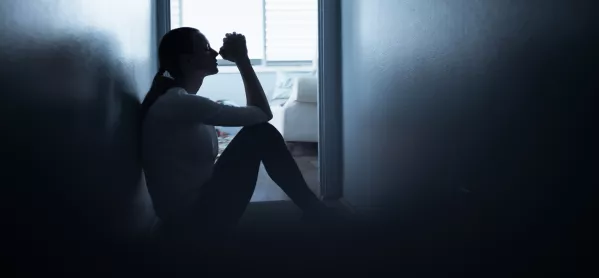Sex harassment: School inspections ‘not robust enough’

A review by Ofsted into instances of sexual harassment in schools has found that past inspections were not always “robust enough” in investigating sexual misconduct among students.
Ofsted said that its review had identified areas where it could “sharpen practice” alongside the Independent Schools Inspectorate.
“Safeguarding is well covered on inspection, but a review of past inspections found that they were sometimes not robust enough on sexual harassment. For example, inspectors did not always record how they followed up with school leaders who failed to share any evidence of past incidents of sexual harassment,” it added.
Ofsted: Heads must assume sexual harassment occurs
Related: Sex education: Teacher knowledge ‘poor’, finds Ofsted
Sexual harassment: Colleges have responsibility to act
Experience: ‘My school was named on Everyone’s Invited’
Related: Ofsted to visit schools at the centre of sex abuse scandal
The review found that sexual harassment in schools, such as girls being harassed to send nude pictures to their peers, was so widespread that it had become “normalised” to young people.
Ofsted to ‘sharpen its practice’ investigating sexual harassment in schools
Nearly nine in 10 girls reported that sexist name-calling and receiving unwanted sexual imagery happened “a lot” or sometimes to them and their peers, in a review of 32 state schools, private schools and colleges.
The review took place in the wake of accounts of serious sexual violence and harassment posted by students on the Everyone’s Invited website.
The Department for Education said that strengthened safeguarding training would be introduced to help teachers identify and respond to harassment, “as well as supervision for dedicated members of school and college staff in up to 10 more local authorities, whose role it is to identify safeguarding concerns among pupils, with a specific focus on sexual abuse”.
Ofsted said it would be working jointly with the Independent Schools Inspectorate to address the issues.
“For 2021-22 and beyond, Ofsted and ISI will work together to produce and jointly deliver further training on inspecting safeguarding in education settings, including looking at issues of peer-on-peer sexual abuse,” Ofsted’s review added.
Education secretary Gavin Williamson said: “Sexual abuse in any form is completely unacceptable. No young person should feel that this is a normal part of their daily lives - schools are places of safety, not harmful behaviours that are tolerated instead of tackled
“Ofsted’s review has rightly highlighted where we can take specific and urgent action to address sexual abuse in education. But there are wider societal influences at play, meaning schools and colleges cannot be expected to tackle these issues alone.
“By reflecting young people’s real experiences in what they are taught, I hope more people feel able to speak up where something isn’t right and call out activity that might previously have been written off as ‘normal’.”
Children’s commissioner Dame Rachel de Souza said: “The most fundamental responsibility that education settings have is to keep children safe. There needs to be a clear focus on preventing peer-on-peer abuse from happening in the first place, as well as providing timely and sensitive support to those affected. The contributors to Everyone’s Invited showed great courage in sharing their stories of abuse and harassment. Now is the time for these stories to be met with action.
“I am pleased to see Ofsted calling for a whole-school and college approach to this issue and I look forward to working with them, the Department for Education, education settings and their safeguarding partners to help make the commitments and recommendations set out in this report a reality.”
The DfE has said it will:
- Further strengthen Keeping Children Safe in Education (KCSIE) and change its wording for clarity.
-
Extend ongoing work by the What Works Centre for Children’s Social Care, working with a further 500 schools to support and supervise designated safeguarding leads in up to 10 additional local authorities.
-
From September, the Independent Schools Inspectorate has agreed to pass on all information on complaints about schools not meeting Independent School Standards to the DfE.
-
The Independent Schools Inspectorate has also produced new guidance for schools, which is clear about the complaints process for inspection.
You need a Tes subscription to read this article
Subscribe now to read this article and get other subscriber-only content:
- Unlimited access to all Tes magazine content
- Exclusive subscriber-only stories
- Award-winning email newsletters
Already a subscriber? Log in
You need a subscription to read this article
Subscribe now to read this article and get other subscriber-only content, including:
- Unlimited access to all Tes magazine content
- Exclusive subscriber-only stories
- Award-winning email newsletters
topics in this article



